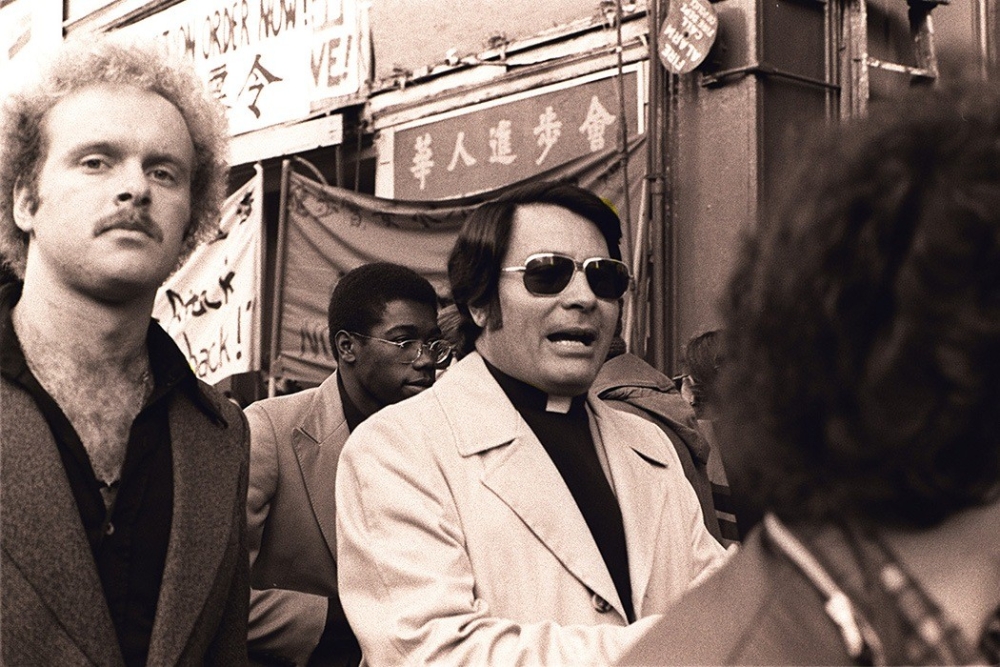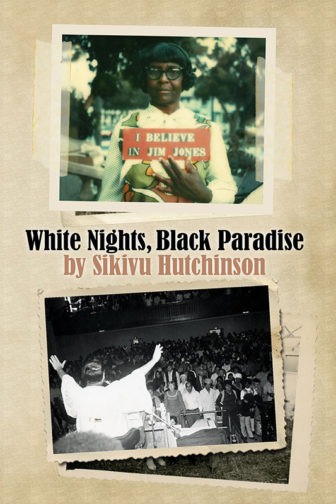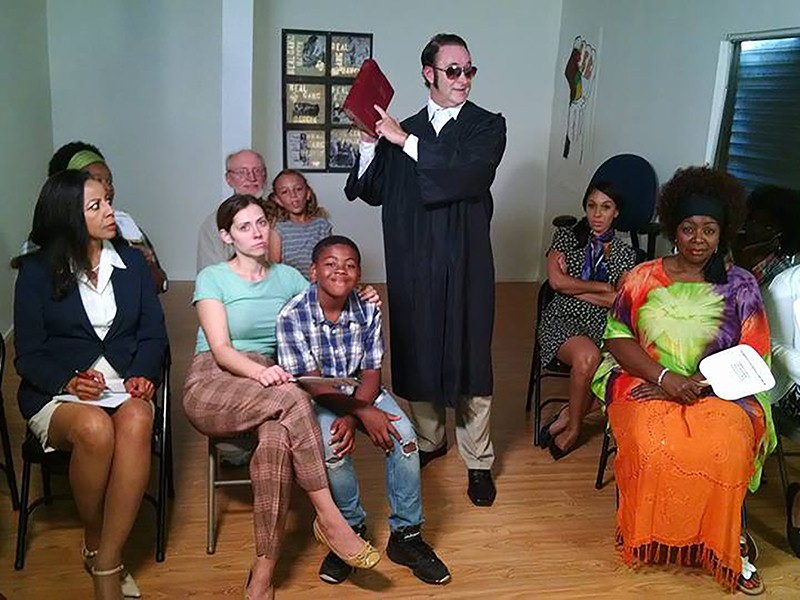On Nov.18,2016, the 38th anniversary of the Jonestown tragedy, many websites and organizations promoted a lot of memorial events to review the tragedy, blame the cult and remember the victims.
Thirty-eight years ago, the bodies of more than 900 members of the Peoples Temple, led by cult leader Jim Jones, were found in a compound in a town knowns as Jonestown in the southern American nation of Guyana.
Later that day, members were directed by Jones to commit an act of “revolutionary suicide” by drinking fruit punch laced with cyanide and sedatives as armed guards stood by.
The next day, Guyanese authorities discovered the gruesome scene: dozens of bloated bodies of men, women and children, many with their arms around one another, strewn around the compound’s pavilion.

Jim Jones in 1977
Jones, age 47, was discovered at the compound, dead from a single bullet wound to the head, believed to be self-inflicted. Before the 9/11 terrorist attacks, the Jonestown massacre was the single largest loss of American civilians in a non-natural disaster.
Of the 918 members who drank the poison under orders that night in Guyana, 276 were children.

A poster from “White Nights, Black Paradise.”
This week, a new film marks the anniversary of the Jonestown tragedy with a special screening at the University of Southern California’s Center for Religion and Civic Culture. “White Nights, Black Paradise” turns its lens on the black women who followed Jones into the jungle.
“One thing I wanted to pull out was that this was an act of self-determination” for black women who followed Jones, said Sikivu Hutchinson, who directed the film and wrote the book (of the same title) that it’s based on.
“Jim Jones successfully exploited black nationalist and black self-determinist rhetoric and made sure black women stayed in the movement and gave their property and sweat equity into making this leap of faith with him to this ‘strange land’” of the Guyanese jungle, Hutchinson said.
Several films, popular books, a play and even an opera have attempted to flesh out the events at Jonestown over the years, but few have focused on the specific experiences of its African-American women members. Hutchinson wanted to tease out the reasons so many sold their homes, gave Jones the proceeds, cut ties with their families and boarded a plane to an unknown land with him.
While others who have tackled Jonestown through documentaries and nonfiction, Hutchinson, a feminist scholar, chose fiction. “White Nights, Black Paradise” was first published as a novel in 2015.

A scene from “White Nights, Black Paradise.” Directed by Sikivu Hutchinson
Camille Lourde Wyatt is a Los Angeles-based actress who plays one of those women in the film. It is important, she said, to understand why black women gave up their lives for Jim Jones to prevent a tragedy like Jonestown from happening again.
“I think it was not hard for Jim Jones to mesmerize black women because we came from knowing that a strong faith in God can change our circumstances and situations and black women were seeking that back in the ’70s, and this man said I can change your circumstances if you would just believe in me and follow me,” she said. “So black women said ‘yes’ and they did.”
Professor Peter Feuerherd released an article on JSTOR. Did you drink the Kool-Aid? The phrase has become such a part of the vocabulary that, for many, its origins in the infamous Nov. 18, 1978, Jonestown Massacre has been obscured.
In fact, the group didn’t drink Kool-Aid; instead, they drank a British version of the popular sugary American drink. And not everyone committed suicide. At least some tried to flee the scene, only to be shot by Jones’ henchmen.
But like many aspects of the Jonestown tragedy, its details have been changed in the popular imagination. What remains is the “drinking the Kool-Aid phrase,” implying derision. In contemporary language, it remains a warning about ignoring personal doubts about dangerous groupthink, a legacy of Jonestown that continues.
Source:
This Day in History: Jonestown Massacre
http://www.voanews.com/a/this-day-in-history-jonestown-massacre/3602889.html
New film focuses on African-American women in Jonestown deaths
http://religionnews.com/2016/11/17ew-film-focuses-on-african-american-women-in-jonestown-deaths/
Drinking the Kool Aid at Jonestown





